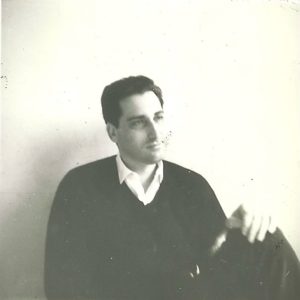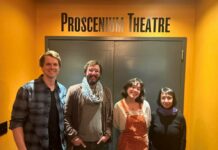By Gall Sigler

Mark Sacharoff, a Temple University professor, anti-Vietnam War activist and playwright died on Aug 7. He was 92.
Sacharoff may not be a household name like Allen Ginsburg and Jack Kerouac — with whom he hung out — but his activism and academic contributions may have changed the course of U.S. history.
Sacharoff was a vehement opponent of the Vietnam War. One of his contributions to the anti-war struggle was an extensive bibliography of works on the Vietnam War, which was featured in The New York Times.
That bibliography was reviewed by journalist Neil Sheehan, and it was that review, Sacharoff was told later by activist Daniel Ellsberg’s lawyer, that convinced Ellsberg to share the Pentagon Papers with Sheehan.
Sacharoff was born in Waterbury, Connecticut in 1929 to Russian Jewish immigrants. Growing up in a cold-water flat, Sacharoff was eager to move to college.
However, despite being a top student, Sacharoff’s Jewish working-class background threatened his academic career.
“He was waitlisted at Wesleyan [University] despite his incredible credentials because, he believed, they had a quota of Jews at the time,” said his son, Laurent Sacharoff.
Even though Sacharoff later matriculated at Wesleyan on a full scholarship, his class background contrasted with that of his peers.
“Wesleyan was a fancy school, and he was, a little, a fish out of the water,” Laurent Sacharoff said.
After graduating in 1950, Sacharoff gravitated toward the era’s literary societies and moved to Greenwich Village in New York City. There he befriended poets and writers such as Ginsburg, Kerouac and Dylan Thomas.
“It was such a special time for him,” said his daughter, Ariadne Green. “He was just engaged with a large group of people that were talking about ideas…It was really about living in that time.”
A decade later, Sacharoff resumed his academic career and completed his Ph.D. at Hunter College. He pursued his passion of plays in a provocative dissertation on “Troilus and Cressida” by Shakespeare, where he suggested that the famous play was misunderstood by some conventional scholarly works.
In 1967, Sacharoff joined Temple University’s faculty as an English professor.
“He really enjoyed teaching; he was really great with students,” Green said.
Initially, Sacharoff immersed himself in academic research.
“Early on, he was publishing like mad in academic journals,” Green said. Gradually, he became more invested in activism and his writing projects.
Following the end of the war, Sacharoff became involved in anti-nuclear proliferation activism and worked with the National Committee for a Sane Nuclear Policy.
Sacharoff headquartered his activism work from home, which enabled him to be central in his children’s upbringing.
“He spent a lot of time with us as children when we were growing up. He was a very present dad,” Laurent Sacharoff said.
Although not religious, Judaism was significant in Sacharoff’s life.
“He was very interested in the history of Judaism and the Bible as a work of literature,” Laurent Sacharoff said.
“Culturally, he definitely, completely identified as Jewish…that was something that was deep for him and important for him,” Green said.
Together with the Playwright Workshop, Sacharoff produced his own play, “The Front Door,” which demonstrates his humor and attraction to the avant-garde.
“It was a dark comedy…it was definitely influenced by his time in the Village, by artists who are also dreamers and can also get stuck,” Laurent Sacharoff said.
In addition to his son and daughter, Sacharoff is survived by his wife Joan and his son-in-law Jon Green. JE
Gall Sigler is an intern for the Jewish Exponent.






